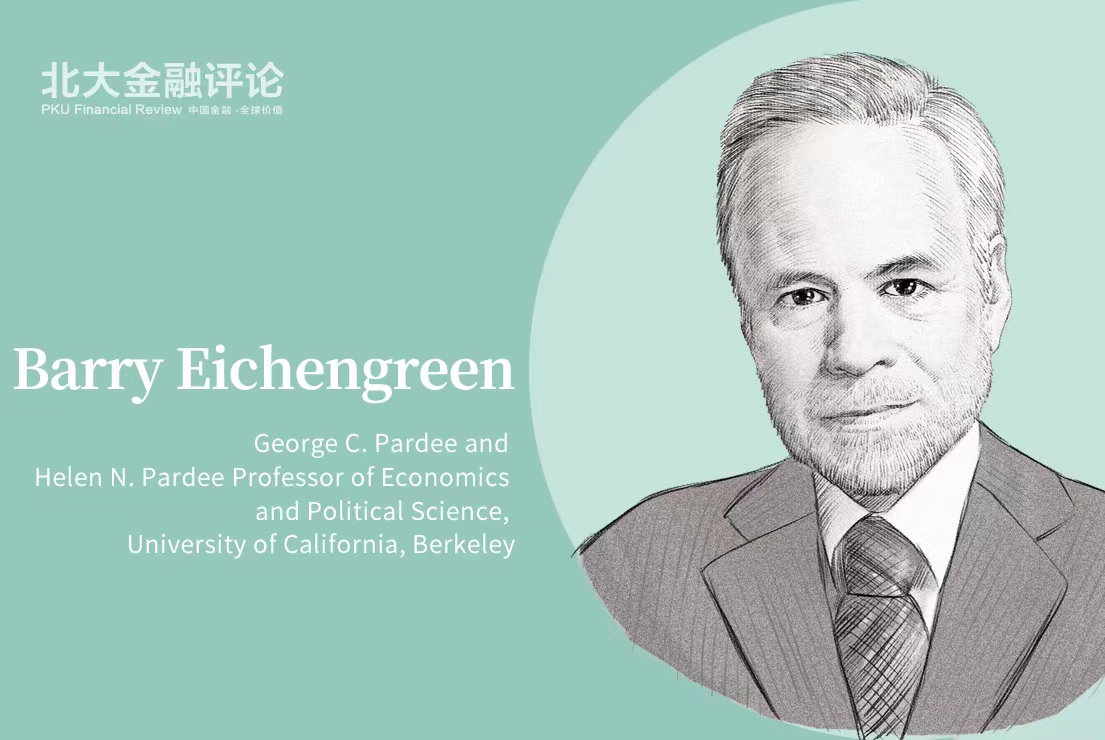George C. Pardee and Helen N. Pardee Professor of Economics and Political Science at the University of California, Berkeley, Barry Eichengreen is one of the most eminent monetary experts and financial historians. In the interview with PKU Financial Review, Barry Eichengreen states that, private cryptocurrency has no value, "decentralization" is only a hoax. The essence of currency is the monopoly of seigniorage, the fulfillment of political power, and the promise of "knife and gun". Private cryptocurrency is nothing more than the "unregulated Wild West" and a window for speculators to prey on each other until there are rules.

PKU Financial Review: There is a huge crisis in the crypto industry, such as the FTX scandal. It's that an important example that reflecting bad corporate governance, poor risk management and evil Internal Control in crypto industry. The crypto industry has fallen from a total market value of $3 trillion to less than $1 trillion now. Is such a catastrophe in the cryptocurrency industry related to the "decentralization and anonymization" advocated by the industry itself? Because such an industry characteristic itself means unwillingness to be transparent, sunny and supervised?
Barry Eichengreen: The crypto sphere is an unregulated Wild West full of scams. So we should not be surprised by recent events. But the idea that this has something to do with “decentralization” is misguided. The cryptosphere is highly centralized. “On chain” transactions using blockchain are awkward and slow, so most agents use exchanges, which are centralized. FTX is a case in point.
PKU Financial Review: In your 2015 classic paper "RMBI or RMBR: Is the Renminbi Destined to Become a Global or Regional Currency?", you pointed out that China has a natural advantage in leveraging regional supply chains and deepening its links with other Asian countries as well as in developing regional institutions. So Asia will become the natural habitat for the renminbi. Now that China is promoting digital renminbi across borders, do you think that digital renminbi will mainly circulate in Asia in the future?
Barry Eichengreen: It's likely that other Asian countries doing business with China will permit some limited domestic circulation of the eCNY. But allowing unlimited use of the eCNY creates the danger of currency substitution, where residents substitute the eCNY the domestic currency, especially in cases where the domestic currency is relatively unstable. Allowing large scale currency substitution causes the domestic central bank to lose monetary autonomy – in other words, it loses the ability to tailor monetary conditions to local needs. So neighboring countries will presumably cap the holdings of their residents of eCNY.
PKU Financial Review: After Russia invaded Ukraine, we saw the United States freeze Russia government's dollar reserves. That surprised many countries. They thought that the U.S. dollar was a freely held currency, but it turned into a weapon of the United States, which undoubtedly increased the risk of holding U.S. dollars in the future. Will this cause gold to return to the central bank's core reserves? In addition, this also forces the central banks of many countries to establish currency interoperability on a regional scale? Do you think this is bad news for the dollar in the long run?
Barry Eichengreen: My coauthors and I have a study of this question. We identify a positive effect of past sanctions on central bank holdings of gold. But that effect is small. So I suspect that we will see a trend in this direction – just not a large one. It follows that if there is bad news for the dollar, it will be a small dollop of bad news only.
PKU Financial Review: If the RMB capital account is still strictly controlled and the current trade account is liberalized, can digital RMB be used as a cross-border consumption account? Will this strategy help it become the world's third-largest currency by 2035 - behind the dollar and the euro, and ahead of the pound and the yen?
Barry Eichengreen: Today the non-digtal RMB can be used for trade-related transactions freely, but for financial transactions only with restrictions. I can imagine the same rules for the eCNY. There’s no reason why introduction of the eCNY would require China to remove its capital controls.
* This article was initially published in PKU Financial Review.















